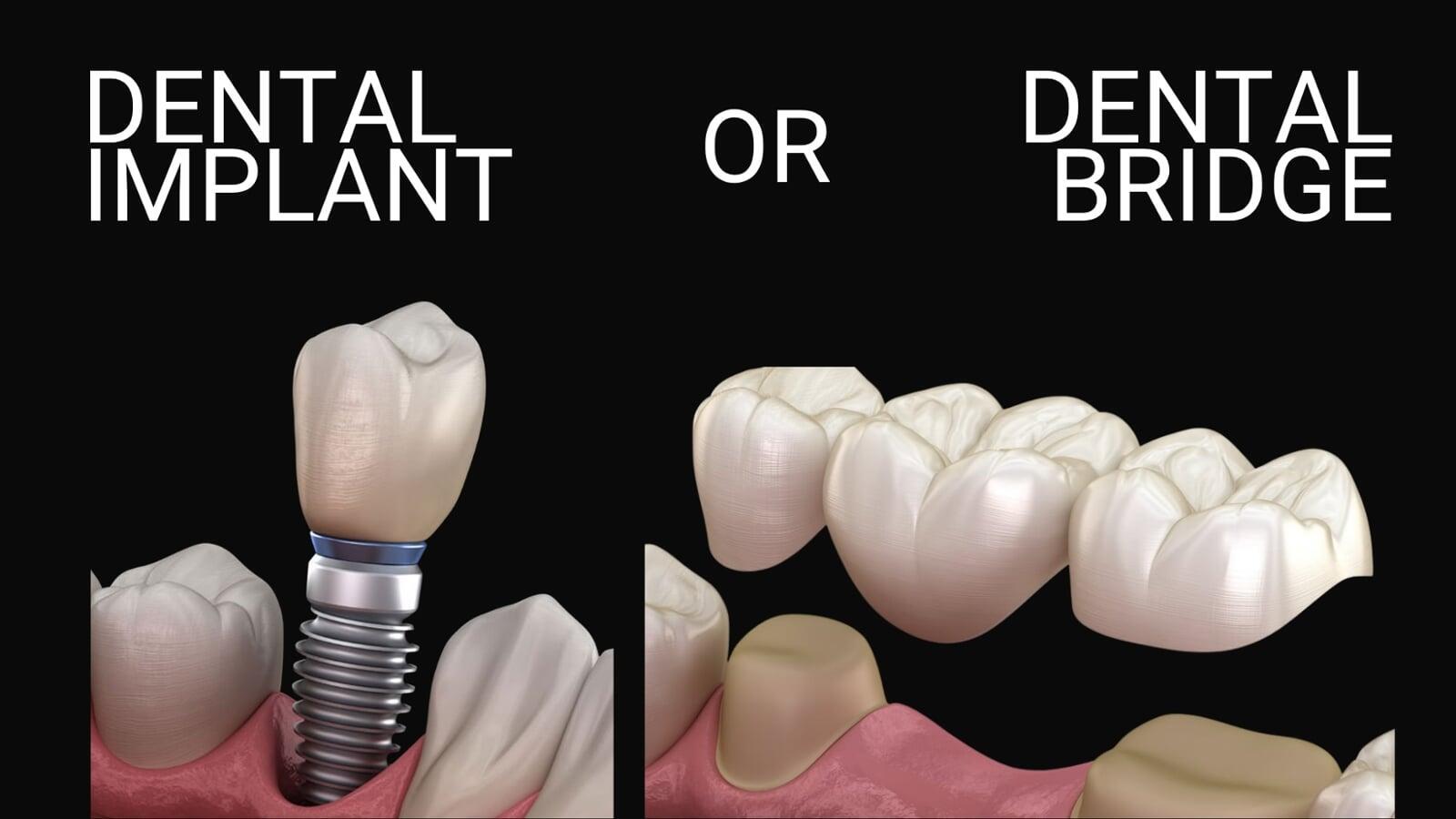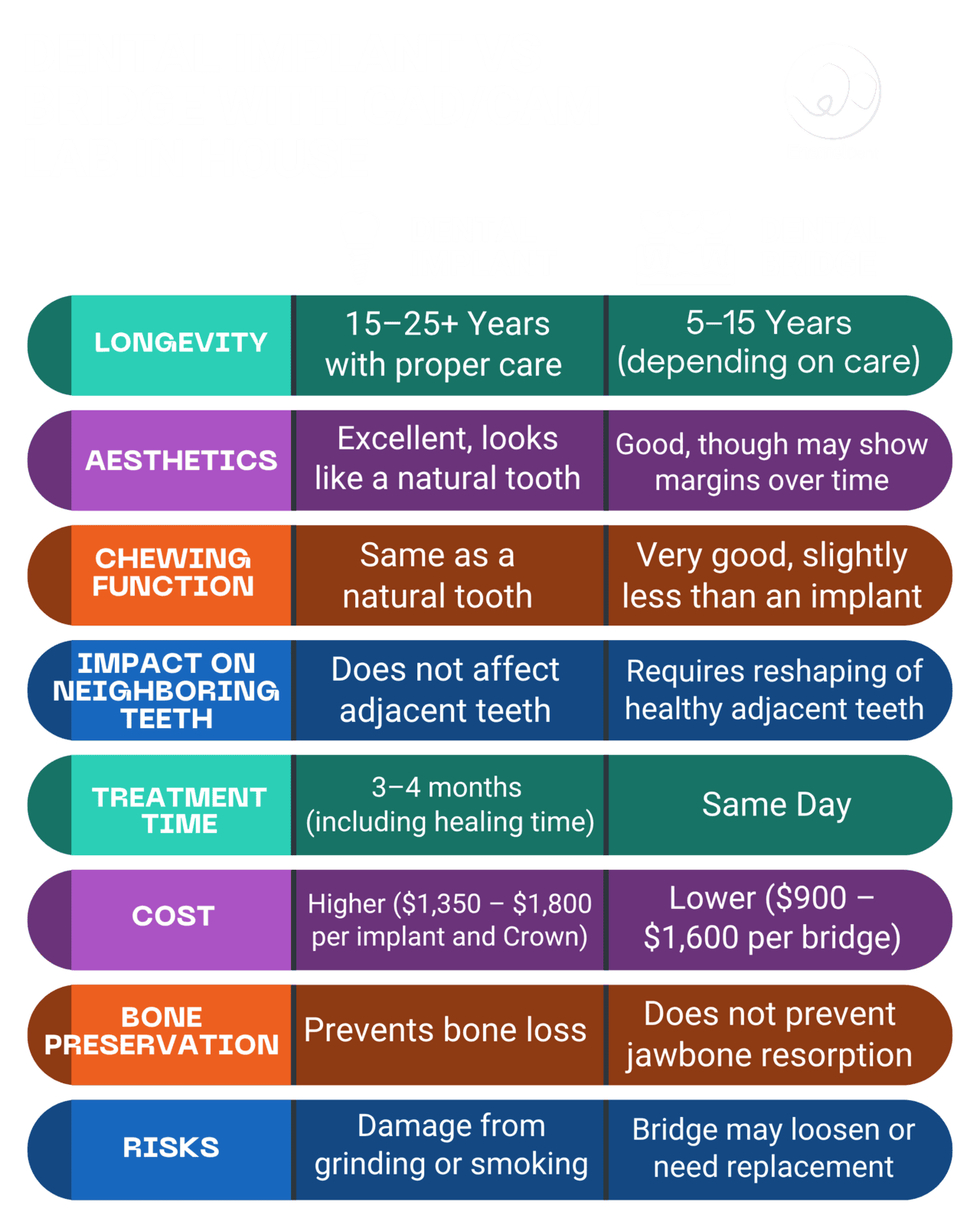Implants vs Dental Bridge: Which Should You Choose?

Losing a tooth doesn't just affect your smile — it can also impact your ability to chew, speak clearly, and maintain the health of your jawbone and surrounding teeth. Thankfully, modern dentistry offers two reliable and aesthetically pleasing solutions for replacing missing teeth: dental implants and dental bridges.
But which option is best for you? In this article, we'll break down everything you need to know so you can make an informed decision with your dentist.
What Is a Dental Implant?
A dental implant is a small titanium or zirconia post that is surgically placed into the jawbone, acting like the root of an artificial tooth. Once the implant fuses with the bone — a process known as osseointegration — a crown is placed on top, functioning and appearing just like a natural tooth.
Components of a dental implant:
Implant screw: Inserted into the bone.
Abutment: Connects the implant to the crown.
Crown: The visible part that looks like a tooth.
What Is a Dental Bridge?
A dental bridge is a fixed prosthetic that replaces one or more missing teeth by anchoring to the neighboring teeth. To place a bridge, the adjacent teeth (called abutment teeth) are reshaped and fitted with crowns, which support the artificial tooth (or teeth) in between, known as pontics.
Side-by-Side Comparison: Implant vs Bridge

What Is a Dental Bridge?
✅ Benefits of Dental Implants:
- Do not damage nearby teeth.
- Long-lasting and highly durable.
- Help preserve jawbone density.
- Look, feel, and function like natural teeth.
✅ Benefits of Dental Bridges:
- More affordable in the short term.
- Quicker treatment process.
- Suitable when adjacent teeth already need crowns.
- No surgery required.
When Is Each Option Recommended?
- Dental implant is usually the better choice if:
You have sufficient jawbone.
You want a long-term solution.
You prefer not to alter healthy teeth.
You're willing to undergo a surgical procedure and wait for healing.
- A dental bridge may be preferable if:
You lack enough bone and don’t want bone graft surgery.
You need a faster solution.
The adjacent teeth are already damaged or have large fillings.
You're working within a limited budget.
Additional Considerations
- General health: People with uncontrolled chronic conditions (such as diabetes or heart disease) should consult with a physician before implant surgery.
- Oral hygiene: Implants require excellent oral care to prevent peri-implantitis (infection around the implant).
- Habits like smoking: Can negatively impact healing and implant success.
Conclusion: Which Should You Choose?
Both implants and bridges can restore your smile and chewing function. While dental implants tend to be the best long-term solution due to their durability and bone preservation benefits, dental bridges offer a faster and more cost-effective alternative for many patients.
Ultimately, the best choice depends on your specific needs, oral health, and budget. A comprehensive dental evaluation — often including X-rays or a CT scan — is essential to determine the right option for your case.


